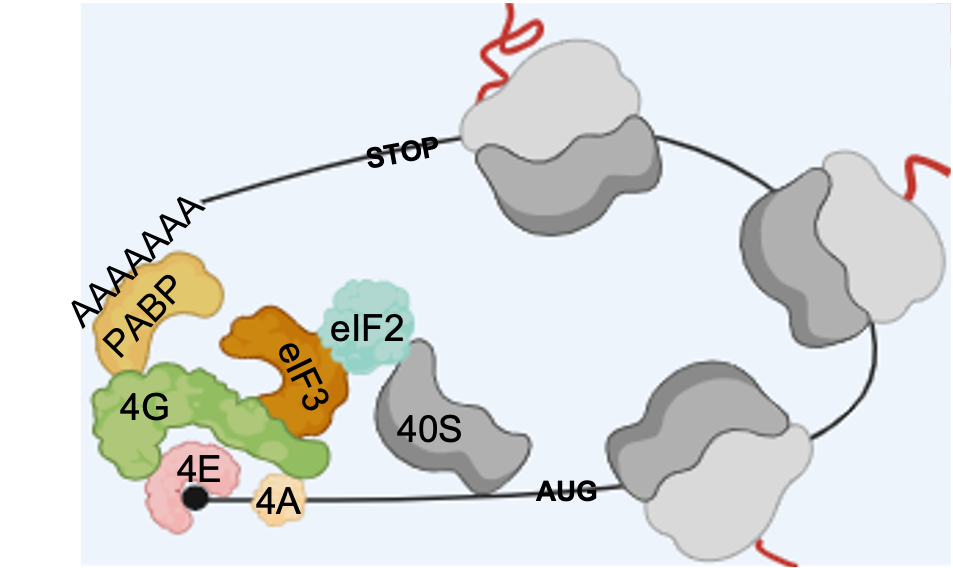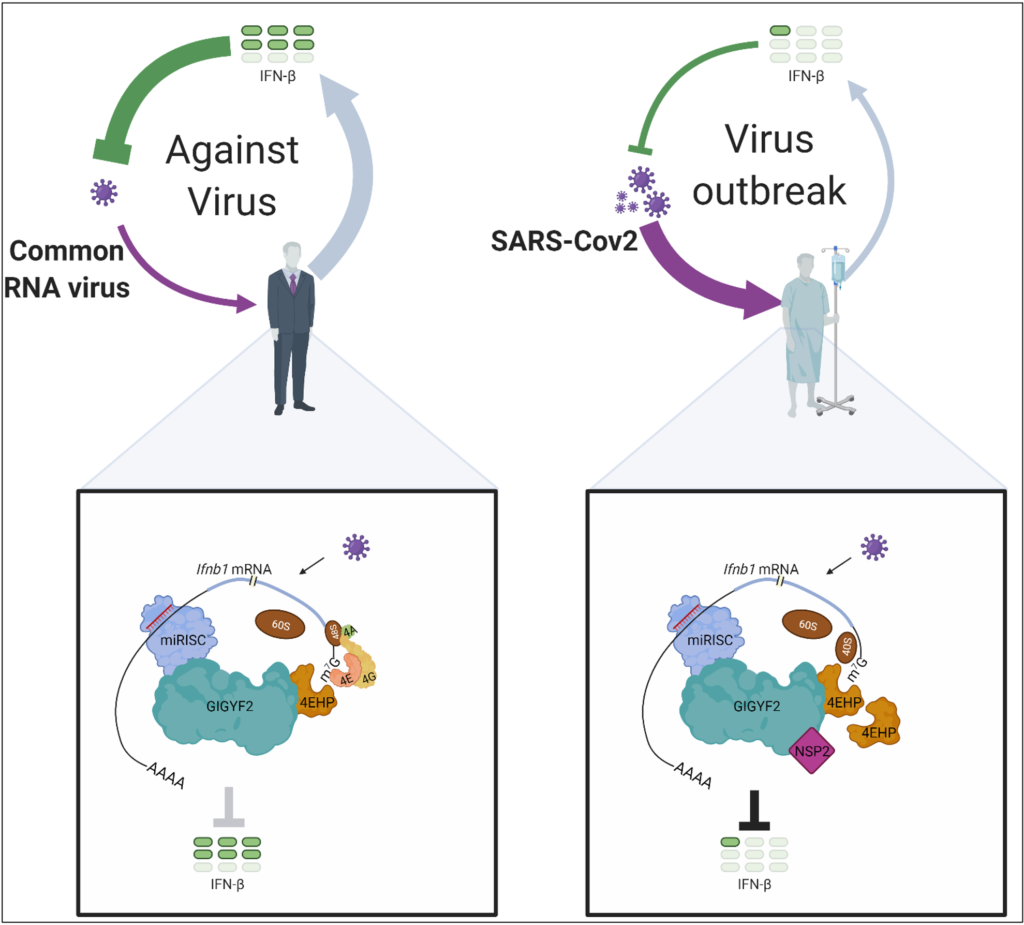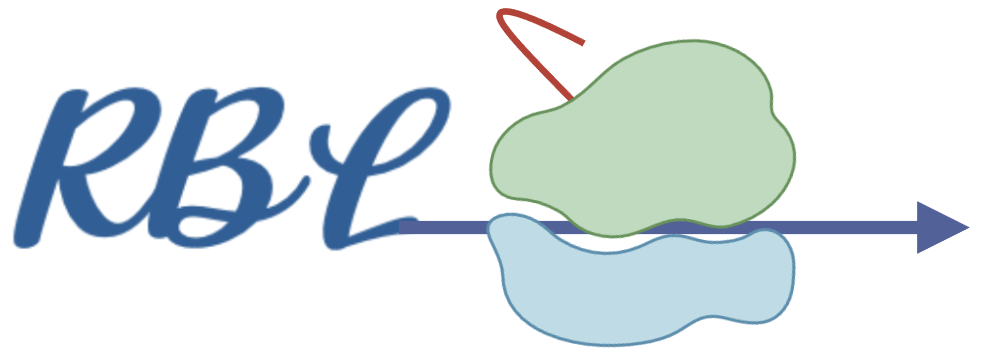1. Mechanisms of regulation of translation initiation
We investigate the intricate mechanisms regulating translation initiation, a critical step in mRNA translation where ribosomes assemble on mRNA to begin protein synthesis. We focus on understanding how various factors, including eukaryotic initiation factors (eIFs), RNA-binding proteins, microRNAs, and signaling pathways, influence the initiation process. Through a combination of molecular biology, biochemistry, and advanced genomics approaches, we strive to provide new insights into the fundamental control of protein synthesis and identify potential targets for therapeutic intervention.

2. Translational regulation of the innate immune response
We explore the role of translational regulation in shaping the innate immune response, the body’s first line of defense against viral infections. We focus on understanding how cells rapidly adjust protein synthesis to modulate the production of antiviral effectors in response to viral replication and the ways by which different viruses manipulate these mechanisms to evade the immune response. This involves studying the interplay between RNA-binding proteins, microRNAs, translation factors, and signaling pathways that control the selective translation of mRNAs during infection. By uncovering how these regulatory mechanisms are orchestrated, we aim to identify novel strategies to enhance antiviral defenses and develop therapeutic approaches for combating viral infections.

3. Translational regulation of anti-cancer treatments response
We study how translational regulation contributes to the response of cancer cells to anticancer treatments, including chemotherapy and radiotherapy. Cancer cells often reprogram their mRNA translation machinery to adapt to therapeutic stress, enabling survival and contributing to drug resistance. We aim to uncover the molecular mechanisms underlying this reprogramming, particularly the ribosome quality control (RQC) mechanism that is the main cellular pathway for identifying damaged mRNAs. By identifying how cancer cells utilize the translation machinery to alleviate the toxicity of anti-cancer treatments, we strive to reveal vulnerabilities in cancer cells that can be targeted to enhance the effectiveness of therapies.

